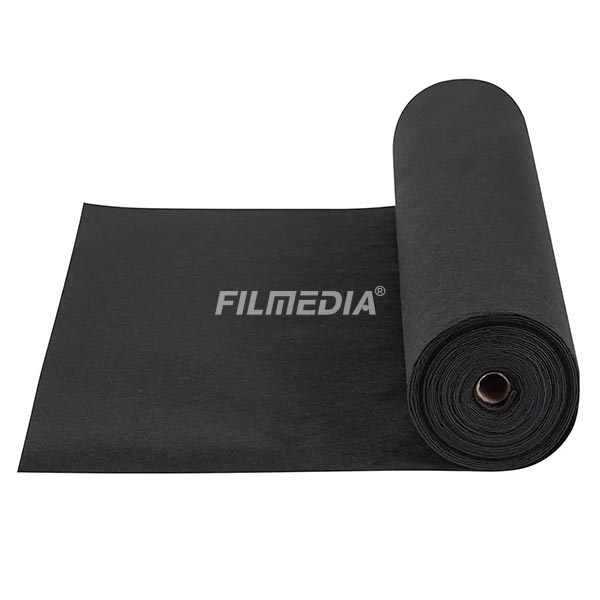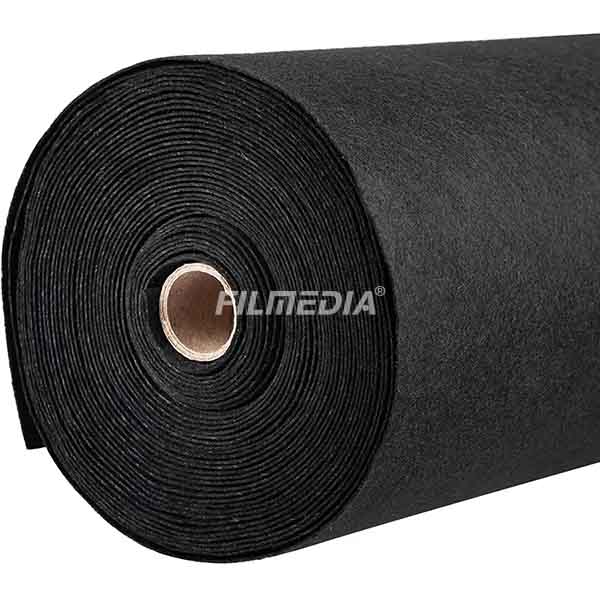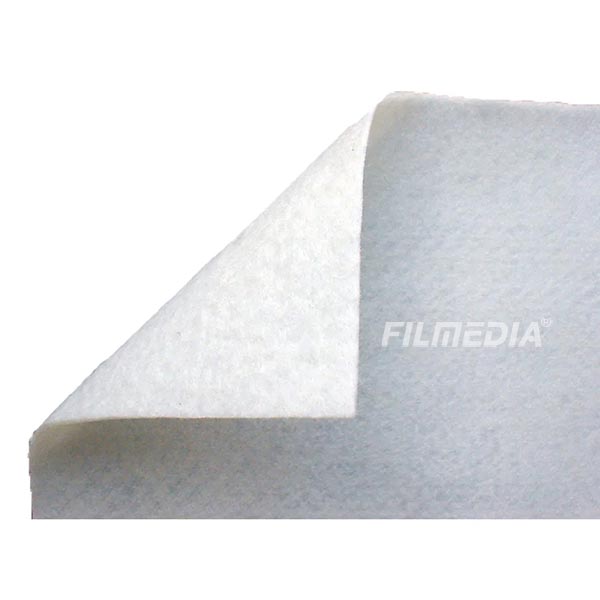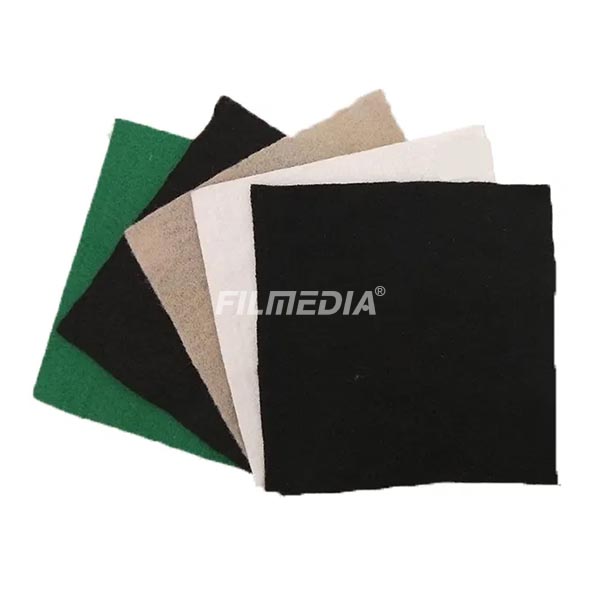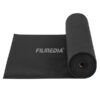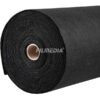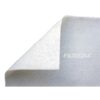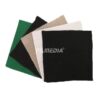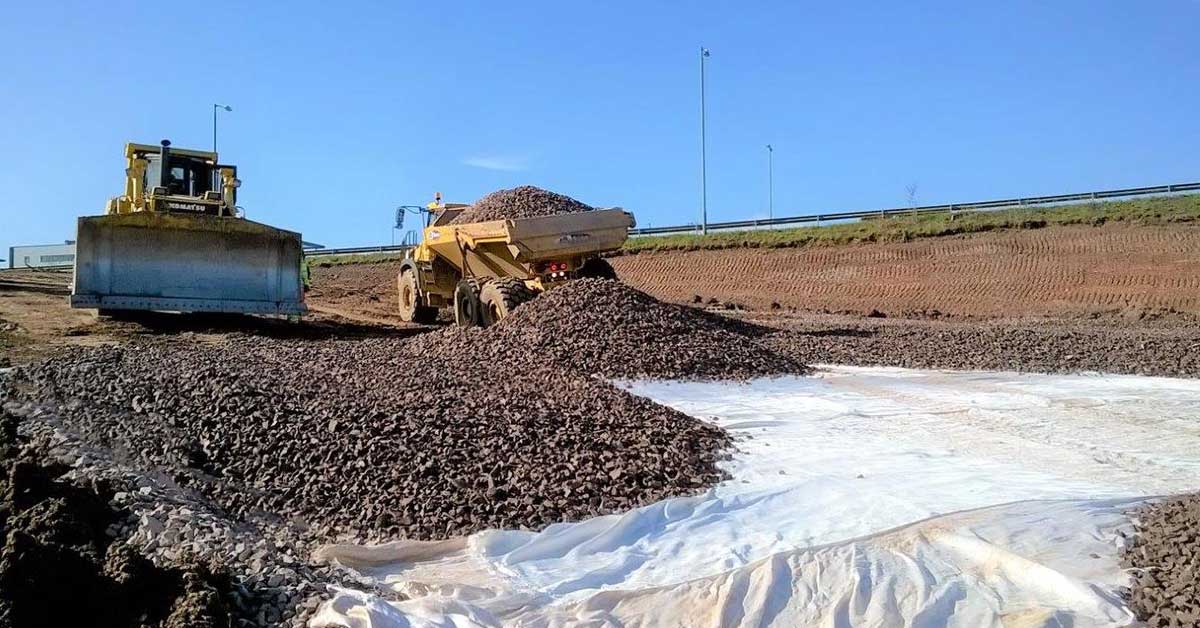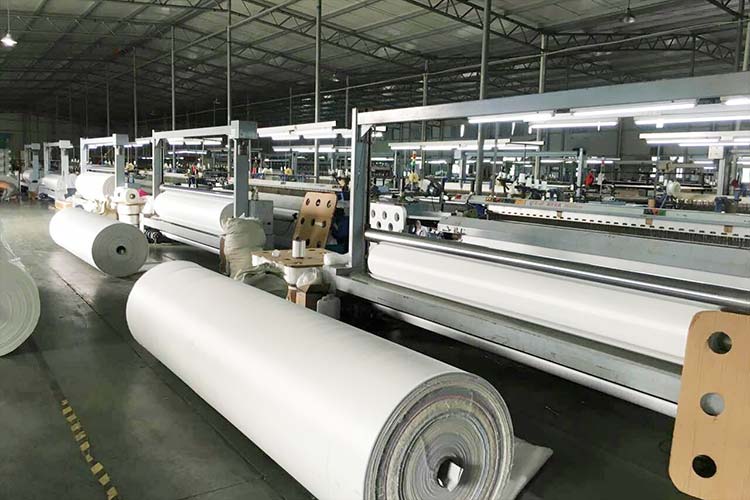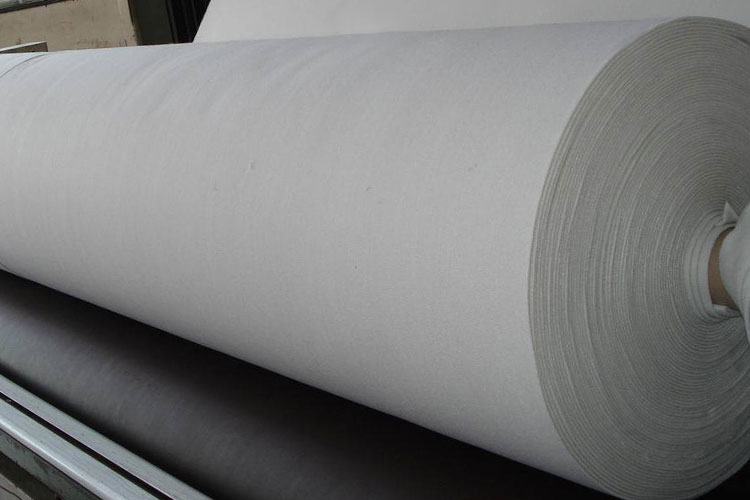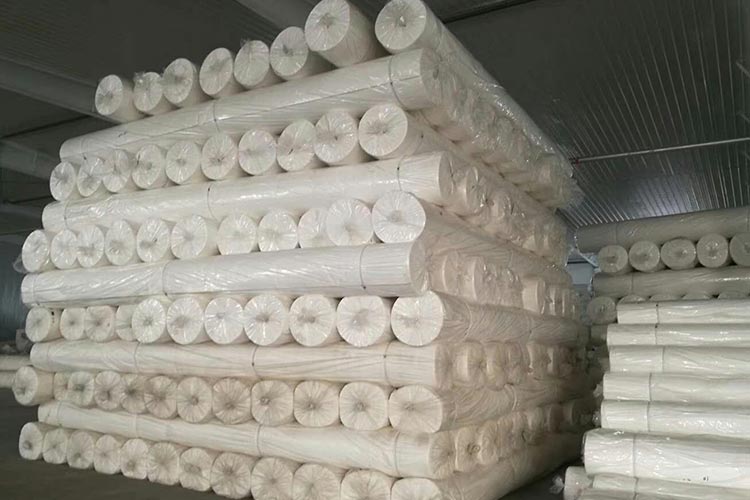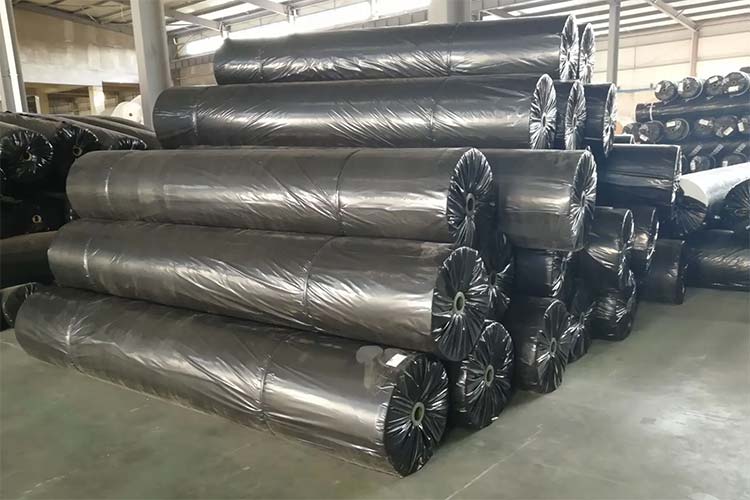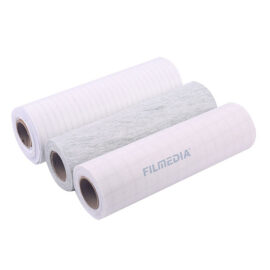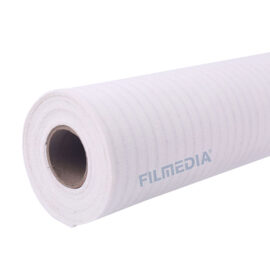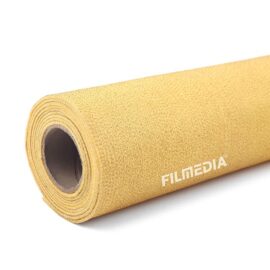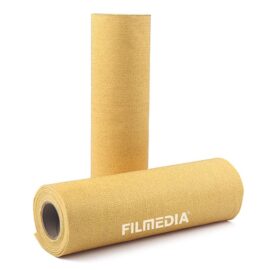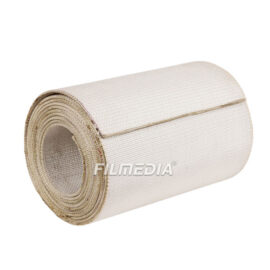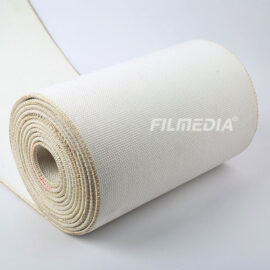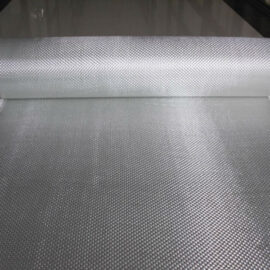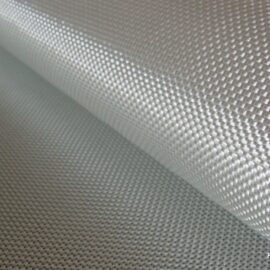Nonwoven geotextiles are synthetic fabrics commonly used in civil engineering and construction projects for a variety of applications. They are made from synthetic fibers that are bonded together through methods like needle punching, heat bonding, or chemical bonding, rather than being woven.
Specifications
- Weight/Mass: 100g/m2-1500g/m2 .
- Width: Within 8 m (1m-8m as request ).
- Length: 50-100m/roll (as request).
- Material: Polyester, Polypropylene, P84, PPS, Aramid Needle Felt.5.Color: Black , white , grey , as your request.
- Working Temperature: 130℉-300℉.
- Filtration Efficiency: reach to 99.5 %.
- Certificate: CE/ISO9001/ISO14001.
Note: We can design and develop kinds of filter media to satisfy the complex and diverse working conditions.
Description
Key Features of Nonwoven Geotextile
- Strength & Durability: Nonwoven geotextiles are strong and resistant to tearing and wear, providing long-term durability in soil stabilization applications.
- Filtration: They act as filters, allowing water to pass through while preventing soil particles from washing away.
- Drainage: Their porous nature facilitates water flow, making them suitable for drainage projects.
- Separation: Used to separate different layers of materials, preventing mixing (e.g., soil from gravel or aggregate).
- Reinforcement: They help improve the stability of soil and other materials by providing reinforcement.
Applications of Nonwoven Geotextile
- Water Resources Engineering: For constructing water reservoirs, canals, dams, and lining ponds, lakes, and wetlands to prevent seepage and maintain water quality.
- Environmental Engineering: In landfill liners, wastewater lagoons, and sludge storage ponds to contain contaminants and prevent leakage into the environment.
- Mining: As liners for tailings ponds, heap leach pads, and other mining waste containment structures.
- Agriculture: For irrigation canals, water storage tanks, and ponds to conserve water and prevent evaporation.
- Civil Engineering: In tunnel linings, underground structures, and retaining walls to provide waterproofing and structural support.
- Oil and Gas: As liners for containment structures in oil and gas production, storage, and transportation facilities.
Low Temperature Materials
| Base Material | Application |
| Polyester Felt (130℉-150℉) | Cement Plant, Metal Industry, Chemical Industry |
| Polypropylene Felt (90℉-120℉) | Metal Industry, Chemical Industry |
High Temperature Materials
| Base Material | Application |
| P84 Felt (260℉-280℉) | Aphalt Plant, Cement Plant, Coal-fired Boiler |
| PPS (190℉-210℉) | Thermal Power Plant, Coal-fired Boiler |
| Aramid Felt (204℉-250℉) | Asphalt Plant, Cement Plant, Metal Industry |
Special Materials
| Base Material | Application |
| Homopolymer Felt (120℉-140℉) | Waste Incinerators, Asphalt Plant, Coal Mill and Power Plant |
| Anti-static (130℉-150℉) | Cement Plant, Flour Plant, Metal Industry, Chemical Industry |
Dimensions of Non Woven Geotextile Fabric
| Item | No. | 1 | 2 | 3 | 4 | 5 | 6 | 7 | 8 | 9 | 10 | 11 | |
| Unit weight, g/m2 | 100 | 150 | 200 | 250 | 300 | 350 | 400 | 450 | 500 | 600 | 800 | ||
| Weight tolerance, % | -8 | -8 | -8 | -8 | -7 | -7 | -7 | -7 | -6 | -6 | -6 | ||
| Thickness, ≥mm | 0.9 | 1.3 | 1.7 | 2.1 | 2.4 | 2.7 | 3 | 3.3 | 3.6 | 4.1 | 5 | ||
| Break strength, ≥KN/m | 2.5 | 4.5 | 6.5 | 8 | 9.5 | 11 | 12.5 | 14 | 16 | 19 | 25 | ||
| CBR burst strength,≥KN | 0.3 | 0.6 | 0.9 | 1.2 | 1.5 | 1.8 | 2.1 | 2.4 | 2.7 | 3.2 | 4 | ||
| Tear strength, ≥KN | 0.08 | 0.12 | 0.16 | 0.2 | 0.24 | 0.28 | 0.33 | 0.38 | 0.42 | 0.46 | 0.6 | ||
| Width tolerance, % | -0.5 | ||||||||||||
| Break elongation, % | 25-100 | ||||||||||||
| EOS O90, mm | 0.07-0.2 | ||||||||||||
| Vertical permeability coefficient, cm/s | K×(10-1-10-3)K=1.0-9.9 | ||||||||||||
Premium Nonwoven Geotextile in Filmedia®
Elevate your engineering feats with our state-of-the-art geotextiles, designed to enhance the performance and longevity of your vital infrastructure projects. Ideal for a broad spectrum of applications, our products seamlessly integrate into highway, railway, dam, and reclamation endeavors, ensuring exceptional filtration, separation, drainage, and maintenance solutions. If you don’t know how to buy the right materials in a specific scenario, we can provide you with a reasonable construction plan to ensure that you buy the right materials and reduce waste of money and materials.

